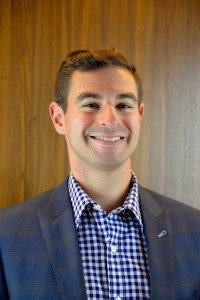I recently participated in a daylong program at my university organized by the school’s career-counseling center to provide graduate students in nonbusiness disciplines with insight into the careers and professional experiences available to us in the world of business. I heard a keynote address from a managing director at a prominent investment bank, attended industry-knowledge breakout sessions covering disciplines as varied as data science and risk management, participated in an image-consulting workshop with a life coach, and learned more about leadership and networking from presentations given by industry experts.
It was an informative albeit exhausting day, but mostly I felt exposed: of over thirty participants, I was the only PhD candidate in the room; the rest were master’s students in a wide variety of preprofessional disciplines. In almost all my interactions with the other attendees and even with the presenters, I encountered a noticeable sense of befuddlement at my presence, as if it just didn’t compute for a doctoral student in the humanities to have any interest in private industry.
In the weeks since, I have given a lot of thought to the ways that PhD candidates preparing for career changes face unique challenges that set them apart from preprofessional master’s students pursuing employment in the private sector. Below, I share three insights on what differentiates doctoral students from industry-aligned master’s students on the job market, and I offer some recommendations for how university career-counseling centers and home departments can better approach these students’ distinct needs. My conclusions are drawn from my own experience as a doctoral candidate in the humanities; however, I suspect that much of what I say would apply to PhD candidates in the basic sciences as well.
- When they apply for jobs outside academia, candidates for master’s and doctoral degrees can’t account for their time in school the same way. Most master’s students in preprofessional programs approach an industry job market that is closely aligned with their course of study, so they experience a strong sense of coherence between their educations and their intended professions. For students with previous work experience, the degree immediately registers to employers as a powerful professional credential that adds the skills necessary for more senior positions. For students just breaking into an industry, the degree is seen as providing the professional training required for entry into the field. Either way you slice it, preprofessional master’s-level education makes a lot of sense on a résumé and in an interview: employers can easily discern the value of such a master’s program, which represents one or two years of full-time skills building and fits neatly into a linear narrative of professional development.
But what about humanities PhD candidates? Our years of academic training, distributed across seminars, teaching, researching (for ourselves and others), and writing, can easily look muddled on paper. And if we choose to pursue careers far afield from our original disciplines, it becomes even harder to account for the time. The journey to a doctorate is so long that it’s difficult to capture the salience of our professional training succinctly—which can be a disadvantage during hiring.
The solution? Create workshops for doctoral students on how to articulate our added value on résumés. Beyond this, facilitate more contact between PhDs and professionals who can help us identify the skills seen as most valuable in different industries. This can be followed up with coaching to help us tell clear, direct stories about our successes in graduate school, highlighting the synergies between these skills and our own training.
- Master’s students frequently get relevant private-sector work experience during their degree programs, while doctoral students usually do not. Many industry-aligned master’s programs are designed to provide students with work experience through internships, externships, January terms, capstone projects, and/or summer jobs. Often, these programs also give students access to a robust professional network, facilitating their contact with potential employers, industry leaders, and distinguished alumni who offer job opportunities, industry knowledge, and mentorship.
Not so for PhD programs. The “official” work we do is often confined to teaching and researching in our disciplines. There is no prescribed structure for how we spend our summers, no broad network to help us cross over into other industries; we tend to network only with other academics, and our own advisers often have limited exposure to other fields. For doctoral students contemplating career transitions, this can mean navigating a new professional landscape largely on our own, with little job experience from which to draw.
The solution? Universities can provide more training on how to build networks, both through person-to-person interactions and through the Internet (via LinkedIn, for example). Career centers and home departments can also work with us to identify fields friendly to, or allied with, our courses of study. They can also increase our exposure to the most significant trends and keywords in these fields so that we learn the right vocabulary for articulating our strengths. Lastly, career centers can help us keep tabs on relevant internship opportunities, facilitating our further contact with sectors beyond academia.
- Master’s students are much more likely than doctoral students to gain exposure to an increasingly in-demand skill: data analysis. These days, almost every kind of preprofessional master’s degree includes some training in data science or quantitative analysis. From engineering to epidemiology to public administration to integrated marketing to food science, master’s programs train students in the interpretation of data and the design of metrics for statistical analysis. Many fields desire these skills, which have broad applications in project management, product design, analytics, consulting, product implementation, and more. But these skills are not conventionally taught in humanities doctoral programs. This is all the more troubling because data science is gaining traction even in our own disciplines—the digital and public humanities are prime examples. So what’s a low-tech humanist to do?
The solution? Universities could facilitate and publicize more “in-house” and external programs that help humanities doctoral students acquire the skills needed for data science and data management. As some of these skills can be hard to acquire cheaply, universities might consider subsidizing outside courses, so PhDs can get this training even on a graduate student budget. And, more broadly, university career centers, in concert with graduate humanities divisions, can envisage bigger ways to provide humanists with professional-development opportunities that engage emerging technologies.
When I began my PhD program, I didn’t think that I would one day be attending business boot camps and blogging about career change. Yet my professional trajectory has helped me see an important reality: doctoral students face a winding path toward professional fulfillment, regardless of what we ultimately do for a living. As universities consider how they can best prepare us for meaningful lives and careers in the twenty-first century, they should work more actively to provide us with the tools and training necessary to navigating all the twists in the road.
 Manoah Finston is a seventh-year doctoral candidate in French literature at New York University. His thesis examines Honoré de Balzac’s novel approach to chronicling the complexities of object-human relations across the texts of La comédie humaine. The thesis posits that in response to Balzac’s innovations authors working in and around the movement of realism became sufficiently interested in quotidian objects that their narratives began to grant ever greater ground and authority to the place of “things” in modern experience, opening a literary discourse that continues into the twenty-first century.
Manoah Finston is a seventh-year doctoral candidate in French literature at New York University. His thesis examines Honoré de Balzac’s novel approach to chronicling the complexities of object-human relations across the texts of La comédie humaine. The thesis posits that in response to Balzac’s innovations authors working in and around the movement of realism became sufficiently interested in quotidian objects that their narratives began to grant ever greater ground and authority to the place of “things” in modern experience, opening a literary discourse that continues into the twenty-first century.
Manoah has taught literature, philosophy, and French language at NYU since 2010. Last year, he celebrated the publication of the landmark Dictionary of Untranslatables (Princeton UP, 2014), a volume in which he is credited as executive editorial assistant. Manoah is also a guru tutor with Cambridge Coaching, working with high school, college, and graduate students in a variety of disciplines.







